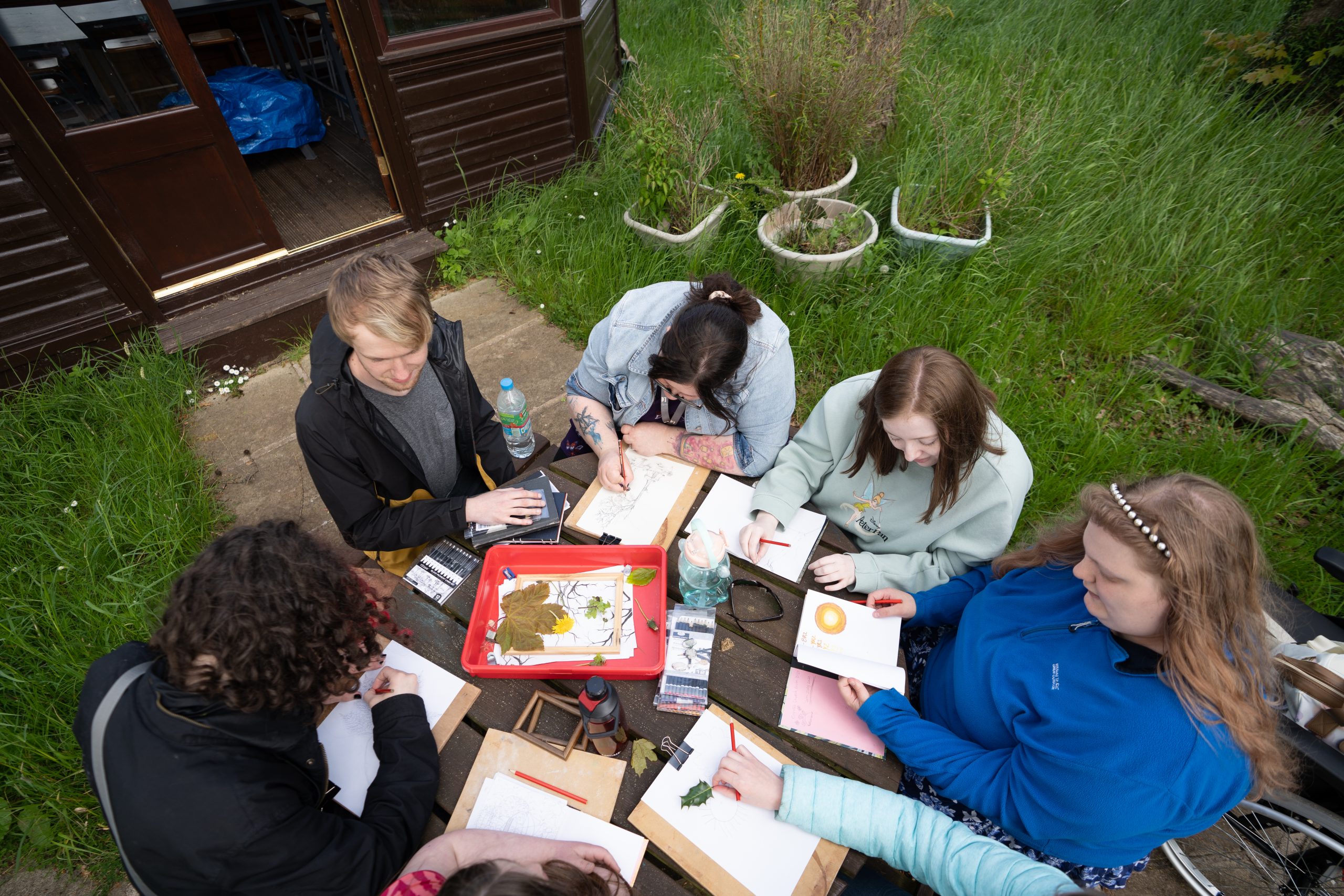What is neurodiversity?
It’s quite simple for us to sum up what we do here at The Donaldson Trust; we offer a range of services and support to neurodiverse individuals. But that word, ‘neurodiverse’, it’s not one that those outside our walls might hear everyday. But what exactly does it mean? And why might a neurodivergent individual require support or a specialised service? Well, fear not, if you read on we’ll do our best to answer those questions for you.

What does the term ‘neurodiversity’ mean?
Remember the old Apple Computers ad that urged us to ‘Think different.’? The line was intended to describe the innovation the company was offering at the time – but it also works as an explanation of what neurodiversity is all about. Simply put, a neurodivergent individual has a different thinking and learning process to others. In fact, Steve Jobs himself was neurodivergent. One thing that’s very important to know is that you won’t see visual signs of someone being neurodivergent.
The term is often used as a byword for conditions on the autism spectrum – while technically correct, the term is much more wide-ranging than that. It actually covers a wide range of hidden conditions such as ADHD, Dyslexia, Dyspraxia, Tourette’s and social anxiety as well. For some people, it can also mean that they require additional support or adjustments. For some, being neurodiverse means that they are actually better at certain things than many others.
In her article ‘Definitive guide to neurodiversity – and why we need it’, Professor Amanda Kirby writes about the inherent value that neurodiversity brings. “At least one in every eight people will be neurodivergent in some form, and the term ‘neurodiversity’ is now gaining currency when it comes to representing variations in cognition and the ways our brains are wired… The fact that neurodiverse individuals excel in a range of different sectors shows what is possible when they have the resilience to overcome challenges and the opportunity to harness their skills.”
What sort of support do neurodivergent people need?
As Professor Kirby points out, there’s a high percentage of neurodivergent individuals out there in the world today – and many require day-to-day assistance. Like when it comes to education, for example. Not all classrooms are created with neurodivergent people in mind. Far from it. Our Sensational Learning Centre is though. Here our focus is on child-centred learning that accounts for the flexibility required by many of the young people that come through our doors. As well as staff who are trained in the additional support needs of our students, we work with a number of specialists who support learning through therapy, the arts and outdoor activity. Technology also plays a big role in assisting communication and increasing independence here at The Donaldson Trust. We also offer an outreach programme that includes coaching and mentoring, Vibe (a learning and wellbeing service for neurodivergent young people aged 12-18), The Gate for 16yrs+ (skills development) and Bespoke, for individualised services. For us it’s all about helping people find their voice as well as a place in the world.
Having a better understanding of the subject certainly goes some way to improving the experience of those with a hidden condition. Thanks for taking the time to read a bit more about neurodiversity, we hope it’s been helpful to you too.